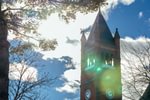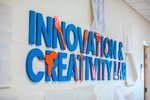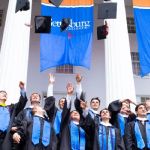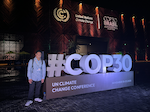
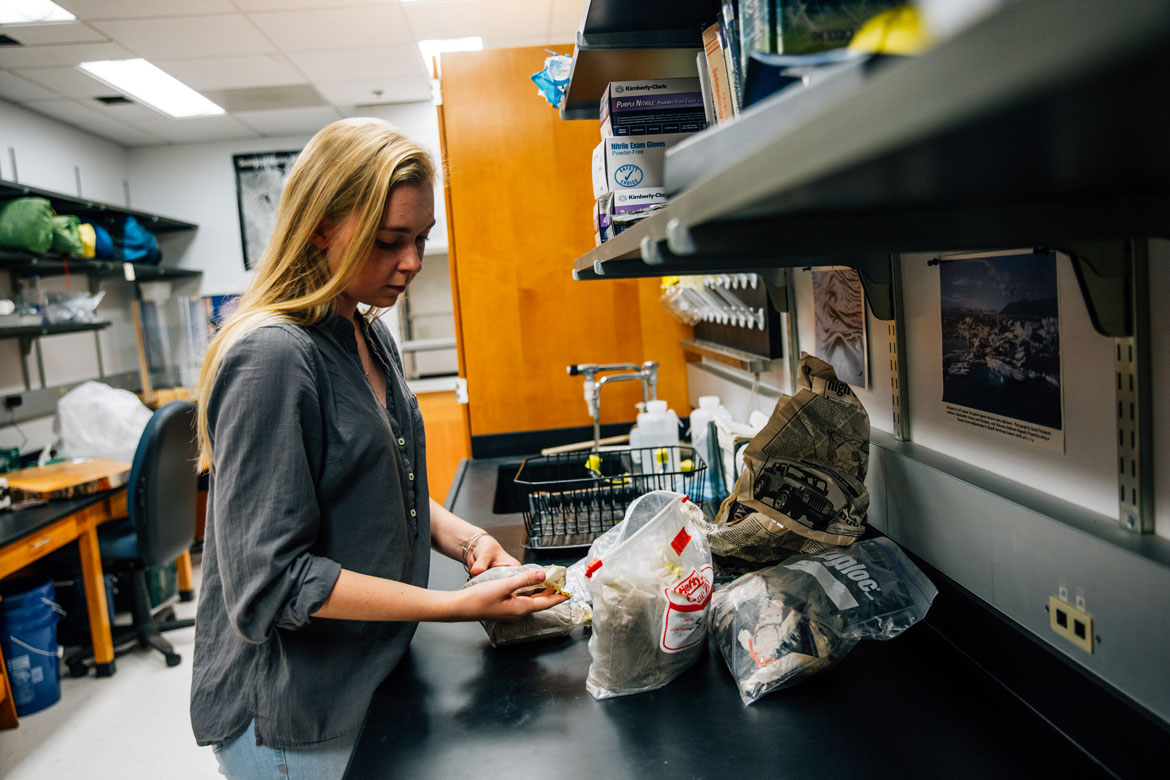
Gettysburg College is filled with exciting opportunities in which students can get involved. During her first visit, Marion McKenzie ’19 was eager to join the campus community.
“You were integrated from the moment you arrived here, and I wanted to be a part of it,” she said. McKenzie immediately busied her schedule with challenging coursework and extracurricular activities.
These courses included Environmental Studies Prof. Sarah Principato’s Earth Systems class and Mathematics Prof. Bela Bajnok’s Calculus 2 honors class. These teachers quickly became her mentors and inspired her to get more involved in the subjects. “Prof. Bajnok saw potential in me that I didn’t see in myself at the time,” McKenzie said. He encouraged her to take more classes in math, and she later declared an environmental studies major, with a mathematics minor.
Between the laboratory and the classroom, these courses sparked curiosity in McKenzie. “The way of thinking is like a puzzle that I had to figure out,” she reflected. “It challenged me and I wanted to continue with it.” McKenzie’s excitement for discovery led her to arrange a lunch meeting with Principato to learn more about her research regarding glaciers in Northern Iceland. The research received a grant, McKenzie applied to be a student researcher, and she was hired as part of the team.
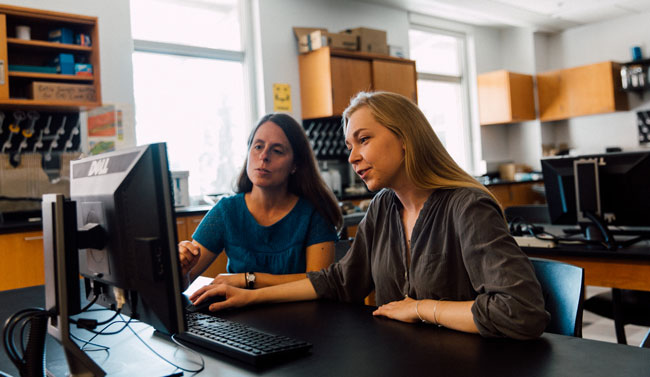 McKenzie is actively involved on-campus. She works as a tour guide in the Admissions Office, and is a student ambassador who hosts information sessions. She is a peer-learning assistant for the Earth Systems Class; a Calculus tutor; a co-director for the Vagina Monologues; an active member of and the Recruitment Director for Tri Sigma; and volunteers off-campus when she can. “I like knowing and helping as many people as I can,” she said. “Getting to know different groups of people on campus is a way to make me feel involved and connected to the campus community. That’s why I fill my schedule so much.”
McKenzie is actively involved on-campus. She works as a tour guide in the Admissions Office, and is a student ambassador who hosts information sessions. She is a peer-learning assistant for the Earth Systems Class; a Calculus tutor; a co-director for the Vagina Monologues; an active member of and the Recruitment Director for Tri Sigma; and volunteers off-campus when she can. “I like knowing and helping as many people as I can,” she said. “Getting to know different groups of people on campus is a way to make me feel involved and connected to the campus community. That’s why I fill my schedule so much.”
Despite all of these activities, McKenzie’s favorite quickly became working in the research laboratory with Principato. “Together, we started looking at landforms in a valley in Northern Iceland, and analyzed different parameters on about 150 of these landforms.” They were able to do this through generous funding from the College’s X-SIG Program.
While in the lab, McKenzie came across a figure that looked questionable. “There was a previously published figure in several academic articles and papers about the general flow of ice streams in Iceland during the last glacial maximum.” The original figure stated that the general direction of flow was pointing straight North, though McKenzie found that the average flow direction was actually Northwest/Southeast. She was able to make a correction to the original figure. She will present her research in Boulder, Colorado and a colleague will present her research in Durham, UK in April.
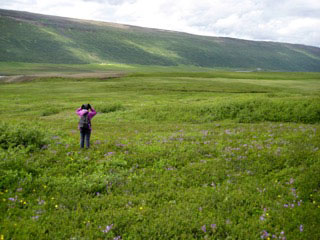 To determine if their research and results were accurate, McKenzie, her lab partner Brittany Bondi ’19, and Principato took a “ground truth” trip to Iceland, to look at the direction of flow in the valley. This was McKenzie’s first time on a plane. “It was so incredible—so great to have the experience. I would do it all over again in a heartbeat,” she said. “Going to Iceland is one thing, but going to Iceland for research and getting to see the entire country through a geologist’s eyes was a once-in-a-lifetime experience.” In Iceland, the team determined their discoveries were correct, and gathered more data to build upon.
To determine if their research and results were accurate, McKenzie, her lab partner Brittany Bondi ’19, and Principato took a “ground truth” trip to Iceland, to look at the direction of flow in the valley. This was McKenzie’s first time on a plane. “It was so incredible—so great to have the experience. I would do it all over again in a heartbeat,” she said. “Going to Iceland is one thing, but going to Iceland for research and getting to see the entire country through a geologist’s eyes was a once-in-a-lifetime experience.” In Iceland, the team determined their discoveries were correct, and gathered more data to build upon.
The publisher of the original figure will be present at the conference in Durham, and McKenzie hopes that he will have a chance to see their research. “It’s not so much like a competition, but we’re learning and building together—finding better ways to analyze what happened 10 to 12,000 years ago when Iceland was covered in ice sheets.”
McKenzie isn’t sure what she wants to do post-graduation, but she is eager to hear back from a few potential summer internship opportunities where she would be studying magma and volcanoes in Hawaii, or working at NASA. “This is my first real experience with research, and I can’t be completely sure what I want to do until I am able to compare and contrast. But at this rate, I think glacial geology is where I want to go.
“I love the idea of looking at glaciers. They are disappearing so quickly that being able to work in and around them, and look at what they used to be is a rare opportunity that I may not have forever. Doing this work will allow future generations to know what once was.”
